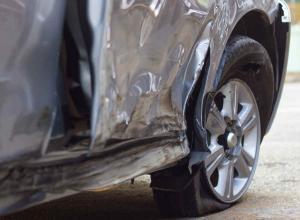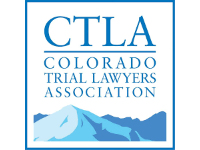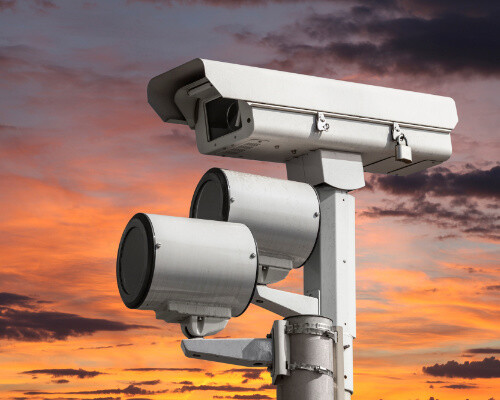Even though photo enforced tickets are legal in Colorado, there are a few things to be aware of that may help you get out of the ticket, or at least more thoughtfully weigh your options of whether to pay it or not.
First off would be the fact that these mailed tickets come with a respond by date, and that you are supposed to pay the ticket within that time frame. Ignoring this mailed ticket itself is not subject to any criminal or civil penalty, per se. However, failure to do so within their time limit means the government may send you a Penalty Assessment Notice (PAN) via certified mail or a process server within 90 days of the offense. This means you will have to sign for the notice in person and pay your fine by the time stated on your citation. If you are not home to receive the notice in person, then the notice is essentially void as you are required to be personally served with the notice for it to be enforceable. There are some exceptions to personal service depending on your area however, such as receiving the summons by certified mail, or having it dropped off with someone at your address who is over the age of 18. In any case however, if the notice came later than 90 days from the violation it is no longer valid so make sure to check the dates. If you do receive an official summons however, you cannot ignore it. Instead, you must go to court and answer the charges listed in the summons.
The confusing issue is which government agency will attempt to send notice of an official summons to you in the event you do not respond to the mailed red light ticket the first time. Failing to correctly obey a traffic light is a violation of Colorado state law, under either CRS 42-4-604 or CR 42-4-605. Violations of Colorado state traffic laws are prosecuted in the County Court corresponding to the county where the violation occurred. The confusion arises when you consider the fact that municipalities in Colorado may have their own Municipal Codes, which allow for violations to be prosecuted in municipal court. There are simply too many municipalities in Colorado that may maintain red light traffic cameras to exhaustively analyze all of the codes on this website. Bear in mind though, that it could be the municipality, rather than the county, who will be trying to enforce the red light ticket, and you should pay attention to the rules in each specific city regarding service of process for the summons or penalty assessment notice, which may be different, and may also change over time depending on updates to the laws.
Another option is to file a “not pictured driver” affidavit which is a document stating that you were not the person driving in the picture even though the vehicle is registered under your name. These affidavits will be reviewed to verify that you were not the one driving, so don’t try to pull a fast one on the police if it actually was you driving because you will need to send in a clear photocopy of your driver’s license with your affidavit so they can compare the photo to your license and verify your claims. Lying to the police is never a good idea, and is also a criminal offense of its own, far more serious than the red light ticket itself. This affidavit must also be filed by your respond by date listed on the citation. If it is determined that you were not the actual driver, the case will be dismissed, but if you are caught saying you weren’t the driver and actually were, there will be a criminal charge imposed on you for reporting false information. Some of these letters ask you to assist the agency in actively identifying the actual driver of the vehicle, which in many cases is a friend or family member to you.
Another option, if you were not the driver of the vehicle, is to ignore the ticket unless you are personally served or mailed a penalty assessment notice by certified mail. This would create additional complications for you if you are personally served however, as you would have to inconvenience yourself by going to court and demonstrating you were not the driver of the vehicle.
It is important to note that when you file a “not pictured driver” affidavit, you are not responsible for telling the authorities who was actually driving. You only have to prove that you were not the person driving and then the courthouse has to figure out who was driving the vehicle at the time, if possible. So it is not necessary to go out and put the blame on your friend that was driving, as you may both be able to get out of it in such a situation.
A third option is to plead not guilty by going to the courthouse in person. This could be for a variety of reasons, such as rushing a family member to the hospital, icy roads that would be dangerous to slam on the brakes, or possibly even a commercial vehicle that was too heavy to be able to stop in time. If you feel you have a valid reason for running the red light, speeding or stopping past the crosswalk lines, you can submit that with your plea but there is no guarantee they will accept your reasoning.
The fourth option is to assess the intersection where the picture was taken for valid signage marking that it is a red light camera enforced intersection. Colorado law requires that all photo enforcement areas be clearly marked with signs so make sure to inspect the area where the photo was taken because if there are no signs marking the photo enforcement or the signs are not easily read while driving through then you may be able to get out of the ticket.
The final option is to request a review of your photo enforcement citation. These reviews are a courtesy and not a right though, so they will be handled at your local courthouse’s discretion. You must call (720) 337-1114 to request a review. It is important to note that requesting a review is only for disputing the merit of the violation for reasons such as it not being a valid violation or the wrong car has been identified. The city will not provide you with evidence for you to use to aid you in getting the citation dropped, so don’t get your hopes up if this is the route you are taking unless you were wrongly cited.
Red light camera tickets DO NOT come with points on your license as these citations are not reported to the Department of Motor Vehicles. Many people think these tickets will affect their driver’s license like other tickets do, but these photo enforced tickets are not the same. Even if you were guilty and pay the fine, you will not be assessed points on your record. So if you were guilty, you may want to consider paying the fine and getting it over with as the fees are generally less than $100.
The fees for red light camera tickets are much lower than typical citations given by police officers. Here is a breakdown of the fines associated with these types of tickets: Speeding In: A residential area or street bordering a park: $40 A school or work zone: $80 Red Light Violations: Running a red light: $75 Stopping beyond the crosswalk: $40-$75 Additional Fees: A minimum additional fee of $29 will be assessed when served with a PAN but this cost may increase if the cost to serve you the notice was higher.
The thing to think about when assessing the risk/reward of how to proceed is this: if you don’t respond to a mailed notification for a red light camera ticket, but wind up later being personally served or otherwise placed on notice within 90 days of the violation, you will have to go to court and the resulting outcome COULD carry points against your license. If you don’t get served personally or sent legal notice by certified mail (or other means, depending on the municipality which is why it’s important to check), then you could get away without any further inconvenience or consequence.
If this seems to you like a bit of a shakedown by the government (hey, pay us this small ticket to avoid the risk of getting a larger one with points on your license later, so we don’t have to follow all of the rules 100%) you wouldn’t be alone in feeling that way. Despite this unpleasantness, many people find it makes the most sense to just pay the ticket and move on, as the risk of being hassled by going to court and paying more money just isn’t worth it.
Sadly, the most pragmatic decision is generally to pay the ticket. Avoiding it risks that you will be personally served and have to go to court to defend yourself. Even if you are successful, this will take at least half a day of your time. If you are not successful, you’ll be out time as well as money, and will also risk points being assessed against your license. The worst part is that this is generally true, even if you feel the red light camera ticket was sent to you in error (as in the case where you were already in the intersection when the light turned red). The sole exception to this is when you were not the driver of the car, as if that is demonstrably the case, you risk little in insisting upon dismissal of the case by affirmatively pointing that out to the authorities.
In the numerous conversations our firm has had with folks in response to this posting online, we have emphasized that while it may be principled to insist upon the full panoply of your rights as an American citizen, in circumstances such as this the pragmatic choice is generally to just pay the fine if you are concerned with saving the most time and money. It is honestly a sad state of affairs that it has come to this, but it is the most blunt and true way to put it. We welcome phone calls with any particular questions that this article is unable to fully answer–speaking with community members about their legal rights is our passion–so don’t feel shy about reaching out if you would like to speak further. As with any article about legal rights posted on the internet, its important to recognize that reading a quick blurb online is no substitute for reading the laws and municipal codes themselves, which are always subject to change.
Despite the bone dry actuarial reality of dealing with these circumstances, there are still actions that you can take if you do not agree with the growing recent trend of government authorities collecting money by photo enforcement devices. If you live in a city with photo enforcement cameras in effect and don’t feel that it is consistent with your values, write a letter to your local government officials and express your discontent with this and your reasoning. You could also attend local government functions and express your discontent in person. You would likely not be the only one in the room with those particular views. The collective voice of the citizens of a municipality is the only force more robust than the government itself. It is the only thing that is capable of effectuating change on a larger scale than an individual citizen’s particular dilemma when faced with a red light camera ticket.
You are probably familiar by now with red light cameras that penalize people who run red lights, but did you know there are multiple other violations that these cameras look for?
Another type of violation they look for is speeding. This is done by photo enforcement vans typically parked along the side of the road in residential areas, construction zones and on streets that border a park. These vans are required to have an officer inside of them to verify each citation as it happens, but still the fines are much less than a typical speeding ticket and don’t come with points on your license.
If you have been issued a citation for a red light violation, speeding violation or stopping past the stop line, there may be ways to get out of it in some cases. At Rector Stuzynski LLC, we primarily represent individuals who are injured in auto accidents, but we feel it is important the the public stay informed about their rights in all situations pertaining to the road.







